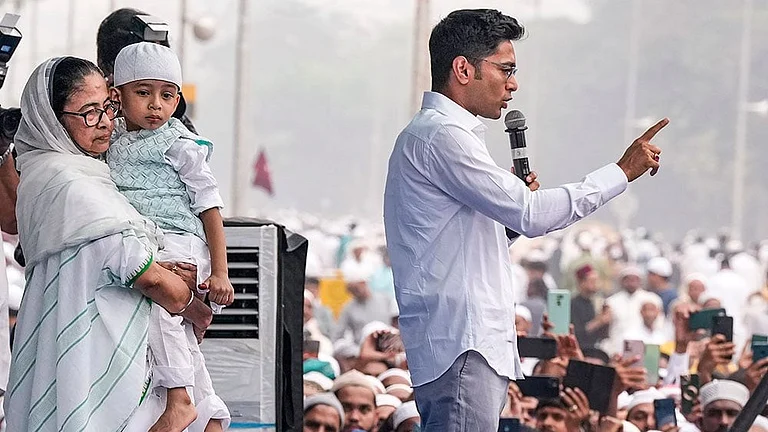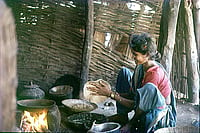It is a measure of the affection as well as admiration that Andre Beteille evokes that he has not one, but two volumes honouring him. The first—Institutions and Inequalities, edited by Ramachandra Guha and Jonathan Parry in 1999—addressed the themes that preoccupied Beteille as a sociologist. The second, Remembered Childhood, is a more personal tribute, inspired by Beteille’s reminiscences about his grandmothers—one French, the other Bengali—in an account first published in the journal Civil Lines.
Autobiographical writing can often be indulgently nostalgic, uninterested in delineating people and places on their own terms. Yet Beteille brought his ethnographic skills to bear on the subject of growing up in the French colony of Chandannagar and Calcutta. His account of the two disparate cultures spanned by his upbringing is a model of how life-stories can also illuminate entire social worlds. The two women described in My Two Grandmothers emerge as warmly human in their idiosyncrasies and, at the same time, irrevocably imprinted by their social location in colonial Bengal. The essay shows how they influenced the young Beteille and also solves a puzzle for many who have wondered about the curiously foreign name of this very Indian man.
Remembered Childhood is presented as a gift to the doyen of Indian sociology on his seventy-fifth birthday. Twelve writers—three of them former students who are formidable scholars in their own right—attempt to emulate Beteille’s feat, revisiting their past to glean insights from the grown-over fields of their youthful days. There is a vicarious pleasure in reading about the lives of famous people and, while none of these authors match page three celebrityhood, several of them come from solidly elite families and describe the lives of what my middle-class relatives called ‘big-big people’. Of these, Gopalkrishna Gandhi is a joy to read, its self-deprecating humour puncturing the puffed-up importance of being the ‘Grandson of the Nation’. Gopalkrishna limns an intimate canvas of life on top of the Hindustan Times building in Delhi, where his father was editor, of common joys and sorrows combined with extraordinary privilege. He is quick to remark on the incongruity of leaving home for Modern School in a uniform specially made from khadi, but being chauffeur-driven in his father’s Dodge—over a distance that could be walked in ten minutes.
Gandhi’s account and that of Cambridge anthropologist Alan Macfarlane are rich in emotion, evoking not only the temper of the times but also the texture of their feelings. Macfarlane’s tea-planter family lived in Assam and he was sent ‘home’ to England to boarding school. The gnawing pain of being wrenched from his beloved mother, of having to leave the warmth—physical and emotional—and the freedom to explore the luxuriant landscape of the hills, permeates his moving account.
Another account of a difficult growing up is described by anthropologist Veena Das. A lower middle-class Punjabi household near Filmistan in old Delhi in the 1950s, with fierce financial constraints and firm views about female roles, is the unlikely setting for the flowering of one of our foremost intellectuals. Das’s story is also a tribute to an era when a twelve-year-old girl could ride a bicycle around the city and use a public library to read furiously, fuelling a scholarly career that would take her to the top of the field.
Pradip Kumar Bose’s essay is another exception to the affluent circumstances that make up most of the childhoods remembered in this book, while Gurcharan Das recalls a comfortable life rendered discontented by his mother’s unfulfilled social ambitions. The editors, Rudrangshu Mukherjee and Malavika Karlekar, present two differently flavoured slices of Bengali aristocracy—one feudal and cricket-crazy, the other a glimpse into babudom and baba-log. T. N. Madan’s tale of growing up in a Kashmiri Pandit household in Srinagar is evocative of a world revolving around rituals and festivities. What makes it poignant is the postscript, describing how their hundred-year-old home was ransacked and vandalised by militants in the 1990s.
Childhood is always a country one must leave behind; but for some the journey has an unexpected finality.

























